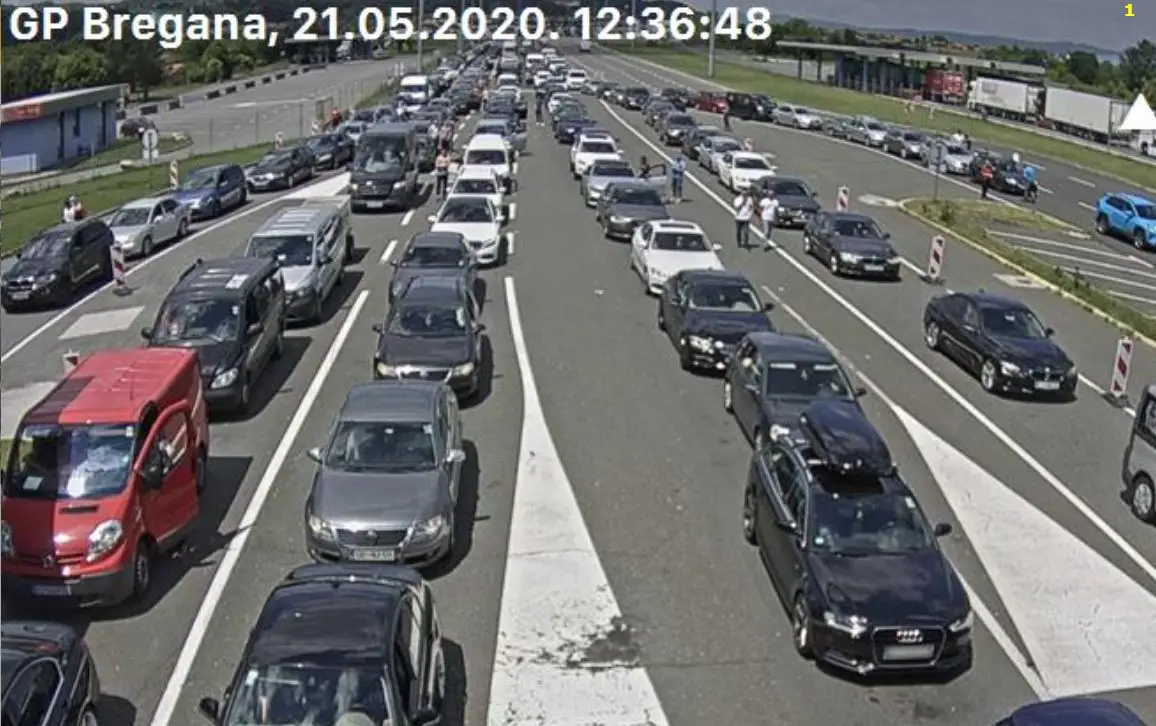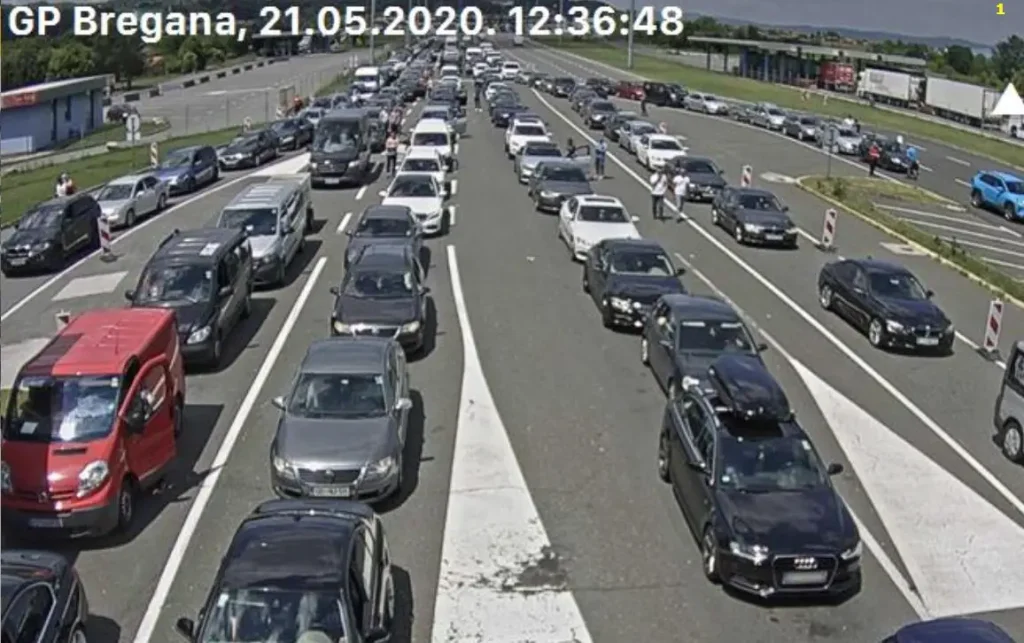
May 21, 2020 – TCN recently sent MUP (the Ministry of the Interior) a set of questions regarding the current coronavirus-induced circumstances in which we all find ourselves, as well as a few other things. Here are those questions and MUP’s response in full:
1. Who can enter Croatia at the moment?
Croatian citizens are allowed to enter the Republic of Croatia, while dual citizens at the Croatian border are treated as Croatian citizens and should be identified as such at the border crossing.
The amended Decision on the temporary ban on crossing the border crossings of the Republic of Croatia allows foreign citizens to enter the Republic of Croatia in the case of:
– business reasons or other economic interest for the Republic of Croatia,
– urgent personal reasons.
2. New measures have been announced which state that people can come if they have a holiday home here, hold legal residence, or if they have some economic reasons for entering. This is all a bit vague. Can you explain exactly what the new rules are and when they come into effect?
In the case of a business visit, EU/EEA citizens must present documentation at the Croatian border showing their economic interest in the Republic of Croatia or proof of the economic operator’s interest in that person entering, or an invitation to a business meeting. This category also includes proof of paid accommodation or the reservation of an apartment/hotel, a contract on the lease of space in a camp, the reservation of a plot in a camp, the rent of a tourist boat or sailboat, paid or previously agreed tourist tours of the Republic of Croatia and other things which fall onto the spectrum of tourist activities, the co-ownership shares in companies registered in the Republic of Croatia, visits to dental clinics, etc.
In the case of urgent personal reasons, foreign citizens must have documentation proving the possession of property located in the Republic of Croatia, or the ownership of a vessel, documentation from which it is evident that the arrival is for the purpose of burying/attending the funeral of a family member. Under this category, a possible reason may be the the care of family members, especially those who are older, coming to participate in court hearings or taking the state exam, coming to financial institutions if foreigners receive a salary or pension from a Croatian employer, the wedding of a family member, etc.
This covers most of the current requests of foreigners to enter the Republic of Croatia, while in all other cases not listed above, and we cannot assume them at this time, foreigners can send their inquiry to [email protected] and they will receive an answer as to whether or not they meet the conditions for the granting of entry into the Republic of Croatia.
These categories of persons will not be assigned a measure of self-isolation, since then they would not be able to fulfill the purpose of their visit if they undertake it, but they must follow the recommendations and instructions of the CNIPH that they will receive at the border crossing.
3. Will Croatia’s borders be open to nationals from every country? Will the borders be opened at the same time? There was talk of the Slovenian border opening first for Slovenians only, then Austrians. A definitive list of which borders when and for whom would clear up a lot of confusion…
We’d like to further inform people that all international border crossings in the Republic of Croatia are now open.
4. What is the procedure regarding testing and self-isolation? Are tourists required to take a test? If yes, who pays and how much?
Testing for COVID-19 is not required for Croatian or foreign citizens, nor is a quarantine/self-isolation measure prescribed.
Persons coming to the Republic of Croatia are obliged to follow the recommendations and instructions of the CNIPH that they will receive at the border crossing, in which it is recommended to limit contacts with other persons and to perform only the most necessary and urgent tasks outside their home within 14 days of entry into the Republic of Croatia. All instructions and recommendations of the Croatian Institute of Public Health are published on their website.
A note from TCN – Foreign nationals with legal residence (the possession of a temporary or permanent residence card) are free to enter Croatia under the same rules as Croatian nationals.
5. Are UK nationals still covered by EU health cover (European Health Insurance Card/EHIC) until 2020?
Regarding health insurance during your stay in the Republic of Croatia, we would like to inform you that the answering of this question is the responsibility of the Ministry of Health and we advise you to contact the competent ministry for an answer.
6. Does ”borders are now open to EU citizens” include people from the UK?
In regard to British citizens, we would like to inform you that the above rules which apply to EU citizens continue to apply to British citizens until the 31st of December 2020. We’d like to inform you that the Decision on the temporary prohibition of crossing the border of the Republic of Croatia prescribes exceptions when crossing the border, and they refer to emergency medical cases, the crossing of medical staff, diplomatic staff, police officers, family reunification cases and the like. Foreign citizens who hold regulated (legal/valid) permanent or temporary residence in the Republic of Croatia may enter the Republic of Croatia without the need to meet any preconditions.
7. Is there any news on when flights from outside the EU (apart from the UK) are scheduled to resume?
In regard to the question regarding the re-establishment of flights with countries outside the EU, we currently don’t have any information on when they will be back in operation. You might contact airport operators for more information on that matter.
8. What are the procedures for people sailing and arriving in Croatia from other countries on the Adriatic?
Regarding the entry of ships, we’d like to inform you that the last Decision of the National Civil Protection Headquarters of the Republic of Croatia of the 18th of May, 2020, repealed [previous] Decisions prohibiting ships in international navigation which had the obligation to enter into self-isolation or quarantine upon entering seaports and inland ports Of the Republic of Croatia. The same Decision enacted the necessary measure prohibiting the entry of passenger ships and international cruises carrying more than forty passengers into seaports and inland ports in Croatia. Since there are now no restrictions (except those for cruise ships), ships, boats and yachts can enter the Republic of Croatia, after which they’re required to enter a port which is open to international maritime traffic for border control.
All information from the competent institutions and other stakeholders regarding the situation caused by the spread of the COVID-19 virus is regularly published and updated on the official website Koronavirus.hr, while all Decisions taken by the National Civil Protection Headquarters can be found by clicking this link.
9. What about tourists already in Croatia, whose visas have expired?
Regarding your question about foreign citizens in Croatia who aren’t able to leave the Republic of Croatia for objective reasons within the period prescribed by the Schengen Borders Code, the Ministry of the Interior of the Republic of Croatia issued a statement on the 30th of March, 2020, in both Croatian and English, which can be accessed by clicking here.
In addition, on April the 16th, 2020, the Croatian Government adopted amendments relating to foreigners and third-country nationals (who do not hold residence in Croatia) during the epidemic, about which we also informed the public. You can read more here.
10. What if I or someone I’m travelling with develops symptoms while on holiday in Croatia?
Regarding the issue of the procedure in case of the development of symptoms during a stay in Croatia, what needs to be done is described in the recommendations and instructions of the Croatian Institute of Public Health for Croatian and foreign citizens when crossing the border and entering the Republic of Croatia.
Upon entering the Republic of Croatia, if someone develops symptoms of the new coronavirus, they must stay in their accommodation and call their host, ie the organiser of their arrival, who then must inform the epidemiologist responsible for their area, or contact their local physician for further advice. If the symptoms develop outside of the working hours of the competent primary care physician, the host can contact the emergency medical services or the nearest coronavirus clinic by phone if the person in question has developed more pronounced symptoms of the new coronavirus.
11. The situation can change rapidly. Do travellers have to worry a spike in new infections in their home country means that Croatia could prevent them from entering?
Regarding your question regarding measures, ie restrictions during the tourist season, we’d like to inform you that the European Commission has issued several documents related to the reactivation of tourism as one of the most important branches of the economy in Europe, and agreements and talks are underway. This is something that will be agreed both with neighbouring countries and at the level of the European Union.
Regarding the issue of the potential for further changes in the measures, ie, restrictions related to the COVID-19 epidemic, we would like to inform you that they depend on the further development of the epidemiological situation and that it isn’t possible to predict them.









